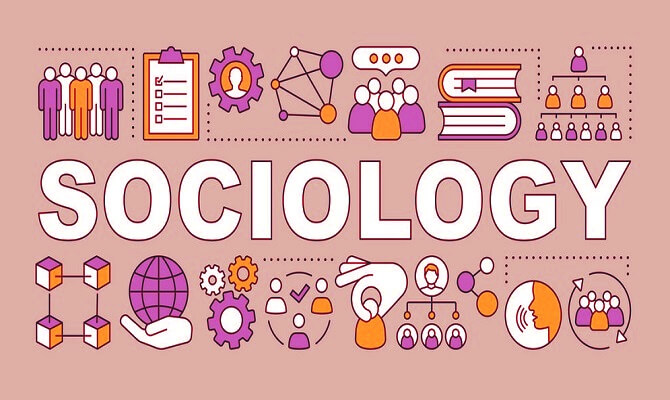Sociology, as an optional subject in the Civil Services Examination conducted by the Union Public Service Commission (UPSC), has gained popularity among aspirants in recent years. With its multidisciplinary approach, relevance in contemporary society, and scoring potential, sociology has emerged as a good choice for UPSC aspirants. Additionally, with the availability of sociology optional coaching and online coaching, candidates can further enhance their preparation and increase their chances of success.
Sociology is a popular optional subject among CSE aspirants, and in this article, we will explore why choosing sociology as an optional subject can be beneficial for candidates appearing for the CSE.
Relevance in Current Societal Context: Sociology, as a discipline, studies human society, its structure, organization, and functioning. It examines social patterns, institutions, and relationships, and seeks to understand how societies are shaped and transformed. In the current societal context, where social issues such as inequality, discrimination, gender, caste, religion, and globalization are significant concerns, studying sociology as an optional subject can provide candidates with a deeper understanding of these issues. It equips them with analytical tools to critically examine social problems, policies, and interventions, which can be invaluable for aspiring civil servants who need to address these issues effectively in their administrative roles. Nowadays Sociology optional coaching online availability has increased its popularity among Civil Services aspirants.
Interdisciplinary Nature: Sociology is an interdisciplinary field that draws on insights from various disciplines such as anthropology, psychology, political science, economics, history, and philosophy, among others. This interdisciplinary nature of sociology allows candidates to develop a holistic perspective and integrate diverse knowledge domains into their understanding of society and its complexities. It helps candidates develop a multidimensional and nuanced approach to social issues, which is highly relevant for the multifaceted challenges that civil servants may encounter in their professional careers.
Diverse Syllabus: Sociology has a diverse and comprehensive syllabus that covers a wide range of topics, including social structure, social change, social institutions, social stratification, gender and society, family, religion, globalization, urbanization, social movements, and research methods, among others. This broad coverage of topics makes sociology a flexible and dynamic subject, which allows candidates to choose the areas of their interest and expertise. It also offers candidates the opportunity to explore and understand different dimensions of society and culture, which can enhance their knowledge and perspective on social issues.
Analytical and Critical Thinking Skills: Sociology requires candidates to develop analytical and critical thinking skills to examine social phenomena, theories, and empirical research. It involves analysing social data, interpreting social theories, and evaluating different perspectives and arguments. These analytical and critical thinking skills are essential for civil servants as they need to analyse complex situations, make informed decisions, and implement effective policies in their administrative roles. Studying sociology as an optional subject can hone these skills and enhance the intellectual acumen of candidates, which can be valuable in their civil services career.
Relevance in General Studies (GS) Papers: Choosing sociology as an optional subject can also have advantages in the General Studies (GS) papers of the UPSC syllabus. Sociology covers a wide range of topics that are relevant to the GS papers, such as social issues, social justice, gender and social empowerment, governance, and social policies. The knowledge and understanding gained from sociology can be applied in the GS papers, providing candidates with a comprehensive and integrated approach to the examination. Moreover, studying sociology can also help candidates develop critical writing skills, which are crucial for scoring well in the GS papers and Essay paper.
Availability of Study Material: Another advantage of choosing sociology as an optional subject is the availability of study material. Sociology is a well-established and widely taught discipline, both in India and abroad, which means that there are abundant resources available for studying sociology. There are numerous books, journals, research papers, and online resources that cater to the needs of sociology aspirants for the civil services examination. This makes it easier for candidates to access quality study material, reference books, and other resources, which can be helpful in their preparation for the examination.
Scoring Potential: Sociology has a reputation for being a scoring subject in the civil services examination. The syllabus of sociology is well-defined and has a logical structure, which makes it relatively easier to cover and prepare compared to some other optional subjects. Additionally, sociology is considered to be a subject that provides opportunities for interlinking concepts, theories, and empirical studies, which can help candidates in answering questions comprehensively and scoring well in the examination. A good grasp of sociological concepts and theories, along with the ability to apply them to contemporary social issues, can result in a strong performance in the optional paper, thereby boosting the overall score of candidates in the civil services examination.
Personal Interest and Aptitude: Choosing sociology as an optional subject can be advantageous for candidates who have a personal interest and aptitude for social sciences, human behaviour, and societal dynamics. If a candidate has a genuine curiosity and passion for understanding society, sociology can be an excellent choice as an optional subject. The inherent interest and motivation to study and analyse human society can result in better engagement, deeper understanding, and higher retention of knowledge, which can ultimately lead to better performance in the examination.
Flexibility and Overlap with General Knowledge: Sociology, being a subject that deals with society and social issues, has an inherent overlap with general knowledge and current affairs. Candidates who choose sociology as an optional subject can leverage this overlap to their advantage. The concepts, theories, and empirical studies of sociology can provide a strong foundation for understanding social issues and policies, which are also important for general knowledge and current affairs preparation. This synergy between sociology and general knowledge can save candidates time and effort in preparing for both the optional subject and the GS papers, making it a convenient choice for candidates who want to optimize their preparation strategy.
In conclusion, choosing sociology as an optional subject in the Civil Services Exam can be a good decision for aspirants due to its contemporary understanding of society and social issues, availability of sociology optional coaching and online coaching, and scoring potential. Sociology provides a holistic understanding of society, helps in developing a sociological imagination, and equips aspirants with the necessary skills to analyze and address social issues as administrators. With the right guidance and preparation, sociology can be a rewarding choice for UPSC aspirants, increasing their chances of success in the highly competitive Civil Services Examination.





Be First to Comment